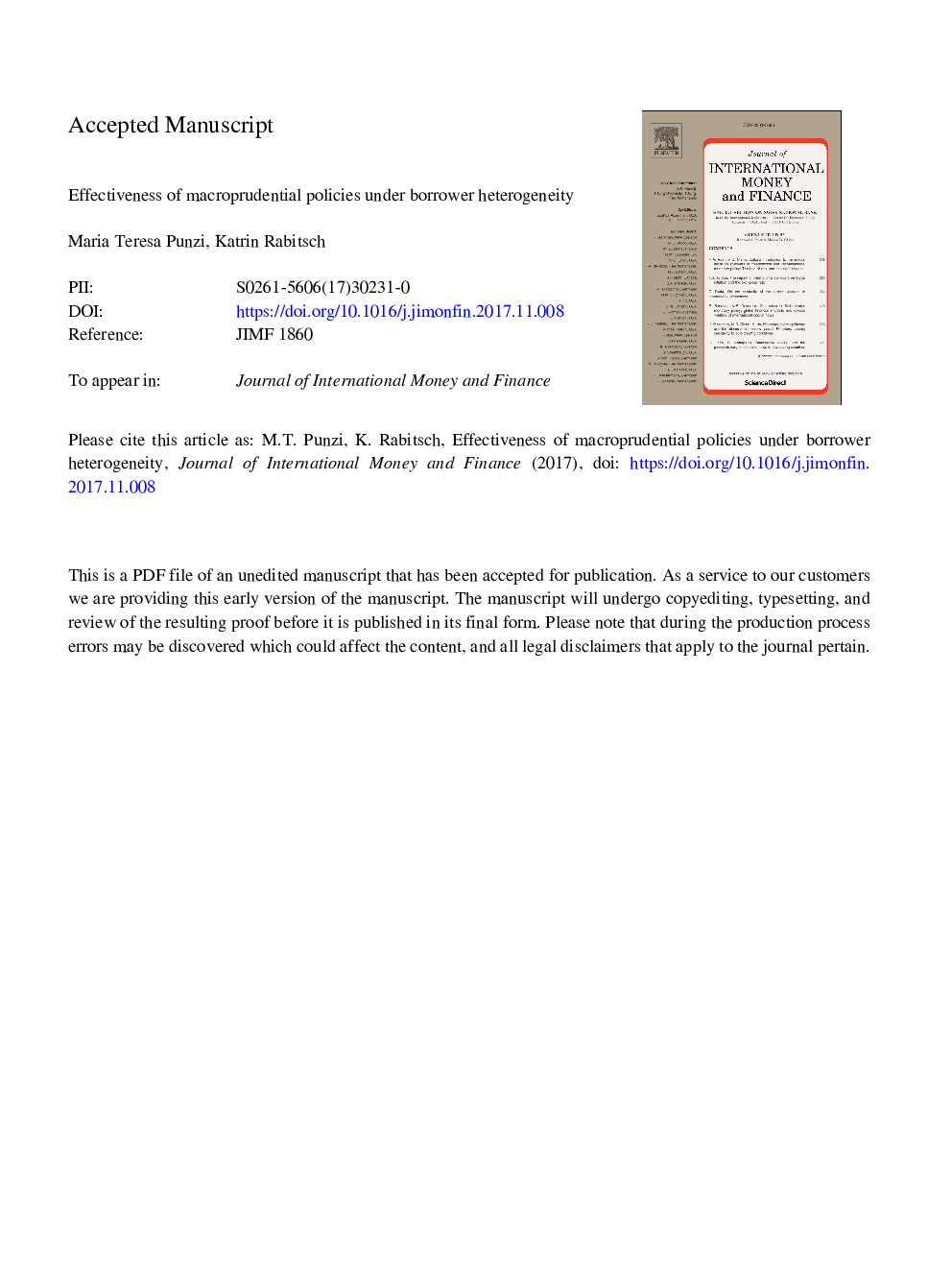| Article ID | Journal | Published Year | Pages | File Type |
|---|---|---|---|---|
| 7365211 | Journal of International Money and Finance | 2018 | 20 Pages |
Abstract
Conditional on this model, we consider the implications of macroprudential policies that aim to lean against an excessive credit cycle. In particular, we allow macroprudential authorities to tighten excessive lending to higher leveraged households, whose riskiness had been evaluated too optimistically. We find that a policy that targets only the group of households that most strongly deleveraged after an adverse idiosyncratic housing investment risk shock, is welfare-improving at social and individual levels, relative to a macroprudential policy which targets all households in the economy.
Related Topics
Social Sciences and Humanities
Economics, Econometrics and Finance
Economics and Econometrics
Authors
Maria Teresa Punzi, Katrin Rabitsch,
